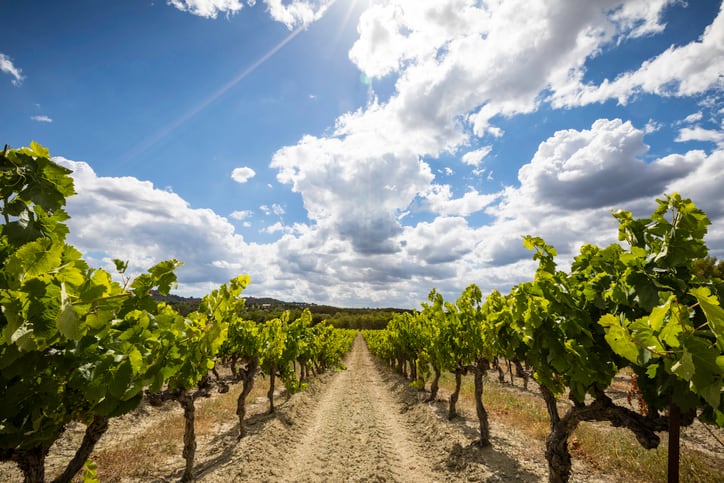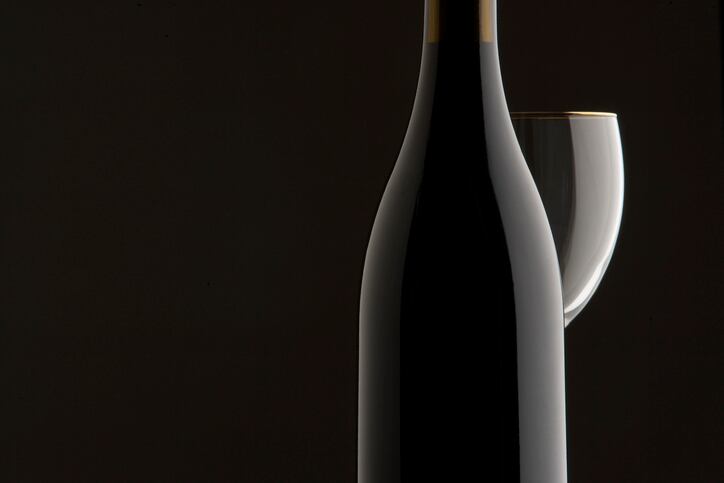Organic wine production levels increased by 22% in 2020 compared to 2019; exceeding 137,000 ha in organic production (either certified organic or in conversion). There was a total of 9,784 organic vineyards: up 21% on 2019.
By the end of 2020, the total organic surface area represented 17% of the surface area dedicated to wine production in the country.
France - already the world's second largest wine producer - has now overtaken Spain to become the largest producer of organic wine, according to the data from AgenceBio.
What is an organic wine?
In France, organic wine must meet the requirements set out by European Union organic regulations. Organic producers are subject to compulsory yearly controls: which assess the entire system of production from the vineyard to winery and finally through to packaging.
For example, winemakers must use 100% organic agricultural ingredients (grapes, sugar, alcohol, rectified concentrated must); while certain physical processes (such as dealcoholization or electrodialysis) are prohibited or restricted. Wines must also respect a restricted list of additives and oenological auxiliaries, favoring organic origins, and must not surpass a certain level of sulphite (which is lower than that in conventional production).
While conversion is a three-year process, more and more wineries are willing to take embark on becoming organic.
“The figures for 2020 are extremely positive,” notes Millesime Bio, a French trade fair dedicated to organic wine which was held in Montpellier this month. “It is possible to observe a clear increase in the number of conversions to organic wine production: in 2020, 3,186 new organic vineyards were created compared to 1,313 in 2019; 891 in 2018; 572 in 2017 and 87 in 2016.
“Conversions to organic vineyards are largely increasing with a total increase of 27% of surface areas under the first year of conversion, equating to 26,564 ha.”
Furthermore, the progression to organic looks set to continue. The conversion process to organic takes three years. In 2010, 11,889 ha were in the first year of conversion. In 2020, this had more than doubled to 26,650 ha.
The leading producer of organic wine in France is the south-western Occitanie region: part of which benefits from the Mediterranean climate. It accounts for around 37% of total surface area of French organic vineyards, equating to 51,101ha and producing around 1.4 million hl of wine in 2020.
Five wine areas account for 79% of the country’s organic wine volume: Languedoc Roussillon (in Occitanie); Rhone, Bordeaux, Provence and Corsica.
Consumer demand exceeds supply
French consumers are particularly interested in organic products: with 55% saying they buy organic products often (up from 38% in 2015 and far more than the UK where 41% of consumers in 2020 bought organic).
And this trend is mirrored in the wine industry. A survey from IPSOS showed that 54% of French consumers have consumed organic wine: up from 36% in 2015. Compared to their neighbors this is a large amount: with 33% of consumers in Germany saying they had consumed organic wine.
The French organic wine consumer tends to be young, urban, and a graduate with a high income. The urban center of Paris enjoys a particularly high level of interest in organic wine: with 75% of people living in the agglomeration having sampled organic wine (nearly double the European average).
The organic wine market enjoys a level of demand that exceeds production capacities, and between 2012-2020 the organic wine market in France has recorded an annual average value growth rate of 13%. In value terms, the market reached €1.1bn ($1.2bn) in 2020.
Organic wine represents around 4.7% of wine consumed in France, in terms of volume, and 6.7% of exported volumes.
A total of 45% of sales of organic wine were made in direct sales; as opposed to just 10% in specialist organic wine stores. Wine merchants accounted for 23% of sales and supermarkets 21%.




